don't be afraid to sit in complexity.
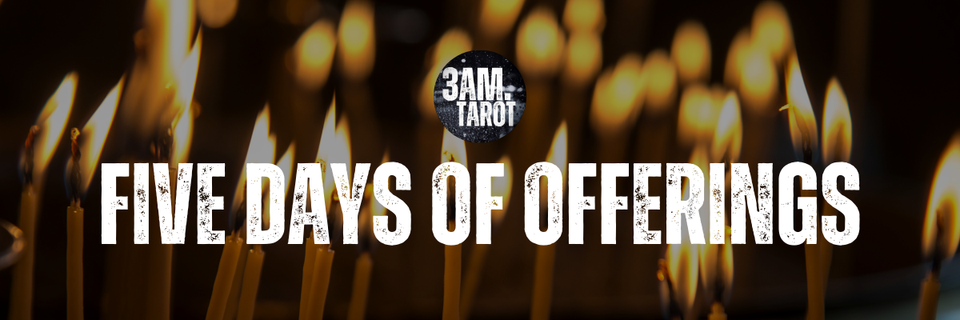
hello, friends. however and wherever this email finds you, whether you're spending time with friends and family (that you hopefully actually like), volunteering in your community, or hiding in bed, i'm sending you love, safety, courage, and comfort.
yesterday we talked about understanding community through working with court cards — and today, we're going to dig deeper into navigating conflict and complexity using tarot. in many ways, this essay is a continuation of yesterday's, so if you missed it you can catch up here. (i also had someone reach out about an error with the website and adding yesterday's special discount — hate when that happens! if you're running into an error at checkout, please feel free to email me after you've purchased order in the court and i can send you a discount code for archetype medicine. apologies!)
there are so many ways that tarot can help us understand conflict, move through complex situations, and recognize friction. but i find that working with longer tarot spreads, and letting the cards tell stories of both triumphs and tribulations, is an excellent way of learning to sit in discomfort or build up tolerance for confronting obstacles, both internal and external.
to that end, today's discount is on my intermediate lecture series, next level tarot. i'm so proud of this resource, as it walks you through clear, practical strategies for navigating confusion, weaving cards together to tell stories, and using larger tarot spreads to get to the heart of complexity. for the next 24 hours, use the code LEVELUP for 30% off this resource.
next level tarot is also available through my signature membership program, so i will remind you that the monthly rate for the 3am.tarot conservatory will be going up in 2025. anyone who is already a member before the end of the year can lock in the current price indefinitely, so if you've been thinking about joining and leveling up your tarot practice at your own pace, now is a great time to do so.
now, take a deep breath and let it out slowly. this essay is long, as i figure many of you might be looking for an excuse to hide in the bathroom or longing to sink into some juicy reading. let's talk about using the tarot to sit in complexity, with the help of some sassy gifs from agatha all along.
the main focus of my work is in using tarot cards for personal practice and deep transformation: internal work, tender work, rich and emotional work that takes time, patience, intention. and i love the cards for their ability to sit with us in pain, to honor our limits and needs, to provide the kinds of support and encouragement that we often so desperately need. the tarot can be such a gentle companion, helping us find exactly the medicine we're craving.
but the other thing i love about the cards is that tarot can call us on our bullshit like few other things can. because tarot isn't just about support, about love and light — it's also about the messy, complex, deeply unreasonable and strange parts of being human. because boy, can humans be messy.
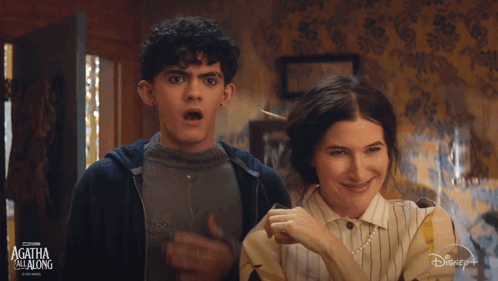
there are cards for pain and strife, for betrayal and sharp words, for emotional outbursts and causing chaos, for abandonment and anger and grief and so many other complicated, difficult things. and i'm glad we have cards for these things, because it allows the tarot to acknowledge and clarify those intense feelings and experiences that we all have at one point or another.
within individual cards, we can find so much power in naming what's happening — and combinations of cards in multi-card readings or larger spreads can represent just about every challenging part of being a person in this complicated world. which means that not only can we see our own pain mirrored in our readings, we can also get our shit rocked when the cards tell us the ways that we have screwed up ourselves.
just as you are not a perfect person who never makes mistakes, and i am certainly not a perfect person who never makes mistakes, all communities are made up of imperfect people who sometimes make mistakes. we are all messy, confused, scared, frustrated people who are trying to figure things out and carve out lives that are satisfying, safe, and pleasurable.
and that means that sometimes, we're the problem.
i know — it's much easier to point the finger at other people, to identify everyone else's flaws and screw-ups and toxic traits. (and sometimes, that's exactly what must be done.) but conflict rarely happens in a vacuum, and most non-abusive relationships include some kind of complexity or friction at one point or another. the only way to navigate that complexity is by learning to address it, to talk about it, to acknowledge our own mistakes, and to recognize that sometimes all we can do is sit in the mess.
the great thing about tarot is that even when we're having trouble owning our own blind spots, the cards often won't hesitate to point them out. and while that's not always comfortable, it is incredibly useful.
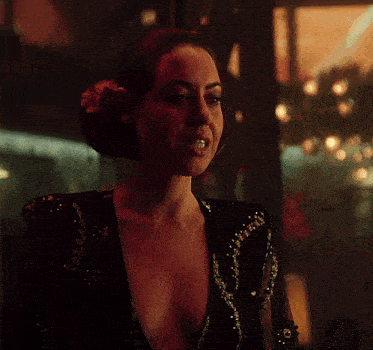
tarot, as i am fond of saying, is a relationship. we learn to speak the tarot's language, we find our own shorthand and slang and personal meanings, we figure out the ways we like to connect with the cards, and we intentionally spend time together, building trust and connection through readings and conversations and activities. just like the relationships that we have with other people, and with ourselves, building a rapport with the cards takes time, energy, intentionality, honesty, and patience.
and it also means that sometimes, the cards can hurt our feelings, or tell us things that we don't particularly want to hear.
like we talked about yesterday, you might already be in a community (or several communities) with people who share things with you: the same values, the same morals, the same interests. you might even have close friends in those communities! yet in thinking about the future, for example, one person might believe in working to reform a current system, another might be eager to disrupt and burn it all down, and another might simply turn their attention to building an alternative system instead. nobody is wrong: all of these paths are valid. yet when we don't know how to sit in complexity, when we view everything through a black-and-white gaze, the infighting and arguing from trying to agree on only one path can ultimately mean that nobody makes good progress.
those kinds of complexities, as well as those types of conflicts, are actually good and healthy things. if we all agreed on everything all the time, the world would be very boring, and change wouldn't be possible. friction is what creates traction, and we need traction for steady movement.
when we're willing to engage, to listen; when we know how to sit in tension or complexity; when can work through challenges instead of just pretending everything is fine — that's where growth and connection and real, authentic community actually live.
you're never going to agree with everyone in your life all the time. and you're probably not always going to agree with your tarot cards, either. you might not even always agree with yourself. sometimes we need more time, more conversation, more listening, more vulnerability, more movement, more willingness to sit in the question, before anything can be resolved. and not every answer or solution comes quickly, or even exists. sometimes we have to let friction do its magic, instead of desperately trying to smooth everything over. and other times we have to acknowledge that something may not be solvable.
and that can be super uncomfortable. but it's also where tarot comes in.
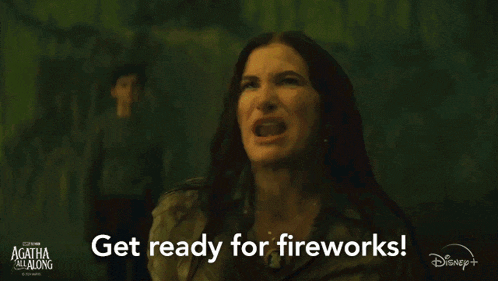
tarot can help us learn to navigate conflict within ourselves and within our communities, which is an essential and often-overlooked skill. with our world getting harder every day, if we want actionable change we need to learn how to work with people we might not agree with or even like. which means that we have to learn how to talk to people and navigate those friction points, rather than simply abandoning a person or community or space the second something gets uncomfortable.
now, don't misunderstand me. toxic people and organizations exist, and you don't have to put up with repeated, harmful, abusive behaviors. you have a right to safety. but conflict is not abuse, and being uncomfortable is not the same as being unsafe. no one is asking you to put yourself in unsafe situations. but — it is absolutely essential for us to learn how to talk through challenges and adjust behaviors so that we can grow, build, evolve, and transform together.
to name the thing that may be on your mind: some people have been actively cutting trump voters out of their lives since the last election. others are sitting down with them for a meal today, in spite of their differing values. i cannot tell you what to do, or how to navigate those kinds of choices — you have to make them for yourself. but i can tell you that if you're choosing to stay in a relationship with someone who votes against bodily autonomy and dignity, if you're willing to break bread with someone who justifies fascism and racism and transphobia for whatever reason, in my opinion it's worth also having hard conversations with that person about their choices, and the impact of those choices. otherwise you're not in community — you're just in proximity.
the result of not having the tough conversations, of letting things continue as they are or disappearing without a word, is that nothing gets resolved. nothing changes: the trajectory just continues indefinitely. and honestly, that's why so many of us are where we are: because so many of us (myself included) were raised to avoid conflict and submit to power at any cost, instead of being brave enough to sit in tension with ourselves and the people we are in community with. and it takes real effort, along with awareness of our own personal patterns, to break those cycles and start to learn new behaviors.
so what do we do? how do we get more comfortable sitting in conflict and complexity?
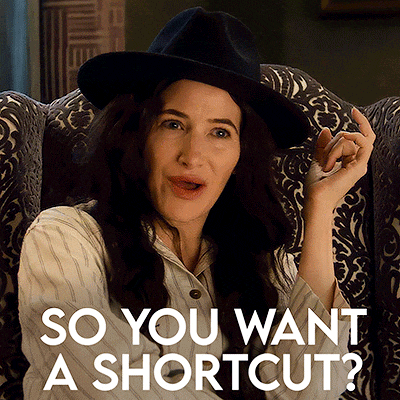
there are plenty of ways to build conflict tolerance. and tarot — yes, tarot — can actually help us gently explore complexity and conflict, if we're brave enough to try.
this could look a few different ways: it could look like participating in group discussions on tarot cards, and actually speaking up if someone shares a perspective that differs wildly from your own. it could look like getting a professional tarot readings with a spread or reader that forces you out of your comfort zone, exploring topics or questions that are particularly intense or challenging for you. it could even look like reading collaboratively with someone who prefers a different kind of deck or set of techniques than you do, and having to navigate the small choices that are required to pull and interpret cards together.
but if conflict absolutely terrifies you, if you would rather ghost an entire relationship than have an uncomfortable conversation, then starting small and learning how to articulate your experiences and opinions even just to yourself might be the best place to begin. and tarot is particularly good for holding space for that kind of discomfort, and learning to navigate internal friction in a healthy, supportive, authentic way.
eventually, with enough practice, you may start to see the power and impact that being willing to openly address friction can offer — and gain more confidence navigating complexity with other people.
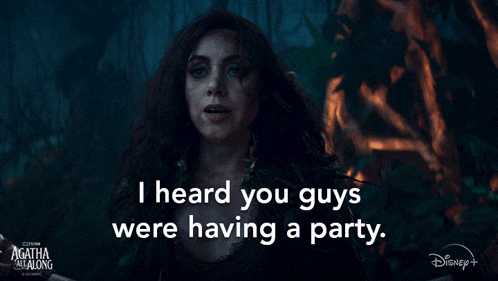
working with the cards, asking hard questions, allowing the tarot to offer corrections or insights that might challenge our perspective or force us to reevaluate our opinions — these are all ways to building up our personal resilience for conflict. if we invite the cards to address the mess, if we are open to hearing what the cards really think of our situation or our choices, it forces us to recognize the full scope of complexity.
through spreads and studies, readings both personal and collaborative, tarot can also help us understand how we ourselves can fit into communities — and can allow us to gently identify areas where we might need extra support, extra education, extra practice, or extra guidance. we all have areas where we need to grow and adapt, and tarot can help us identify them with grace and compassion. we all have blind spots that community can amplify in ways that are often uncomfortable, and the tarot can help us understand and navigate those situations.
these kinds of daily practices and tarot rituals may seem small. but when you start to intentionally build up your resilience for conflict and your tolerance for discomfort through your tarot practice and your spiritual / creative work, these habits can empower you in other areas of your life. they can help you practice speaking up, navigating obstacles, using your words and sharing your perspective, and transforming your relationship with complexity.
what beautiful things come from friction, from transformation? we've spent all year talking about fire and wands and heat: what happens when we let ourselves dance and sing and rage through that process of creation, destruction, refinement, renewal? what happens when we're brave enough to walk through the fire, instead of cowering from the flames?
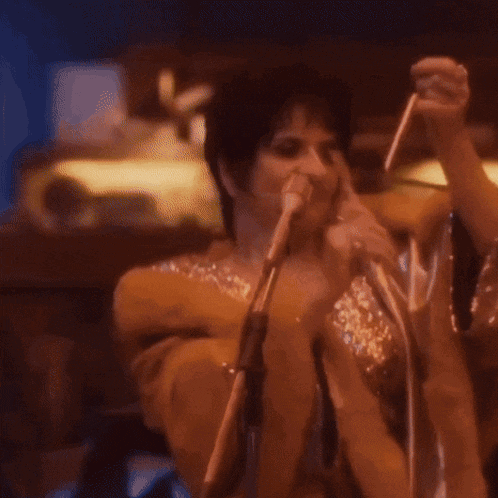
i wrote a series of tarot spreads last year at this time, which are all still relevant. but also: if you're feeling frustrated, if you're mad at yourself or somebody else or the whole damn world, grab your tarot cards, shuffle well, take a deep breath, and pull out four cards, one for each position.
card one: a real tension that exists, right now. what is uncomfortable? what is not adding up in a way that suits you? what is confounding or frustrating or irritating? where is there friction, either internally or externally?
card two: something that is true regardless of what you do. what part of this situation is beyond your control? what will remain in spite of your actions? what do you need to acknowledge as permanent, at least for right now?
card three: something that is within your power to actively change. how are you part of this? what could you do to address the tension, to navigate the conflict, to take ownership or any mistakes or blind spots?
card four: a truth to sit with, even if it's uncomfortable. what do the cards want to tell you? what is something real, that may be difficult for you to acknowledge?
what are the cards whispering to you, that you've been avoiding or ignoring or downplaying? and if a tarot reading isn't possible or accessible right now, ask yourself: what about your current situation is outside of your control, and what is something about your current challenge that you've actively contributed to or created? are you part of the problem, or are you just dealing with it? what steps can you take, right now, to drag something out into the open or deal with something important, in a way that activates the potential for change?
what do your cards, or your intuition, really want you to hear right now — and are you willing to listen?

wishing you safety, courage, and the willingness to do the hard thing today and always. and remember that if you'd like tips, practice exercises, and resources for digging into longer and more complicated tarot readings, you can get next level tarot for 30% off with the code LEVELUP today.
the last essay (and the final discount of the year) will hit your inbox tomorrow 🖤

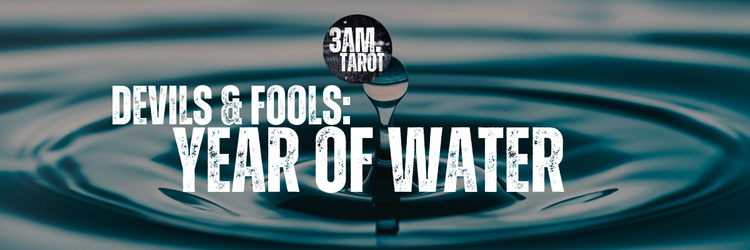
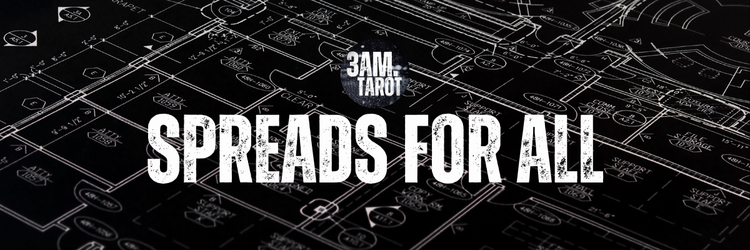
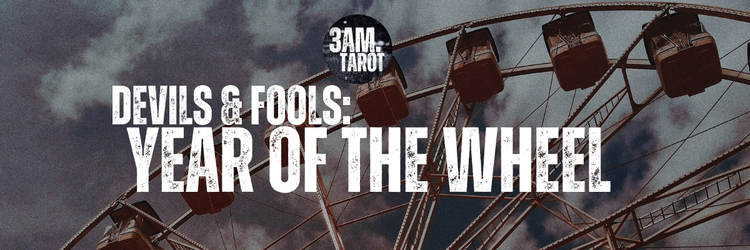


Member discussion